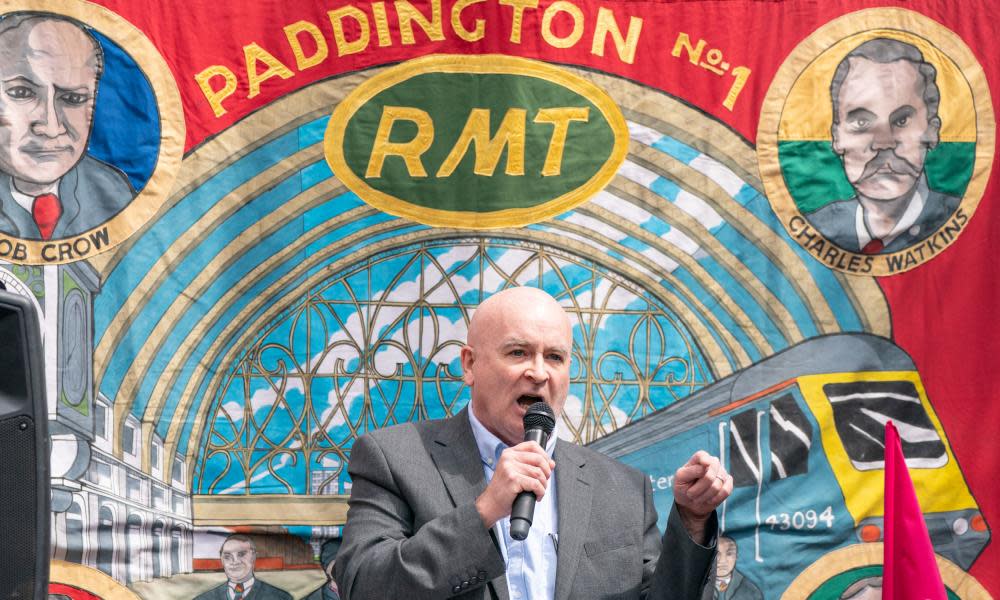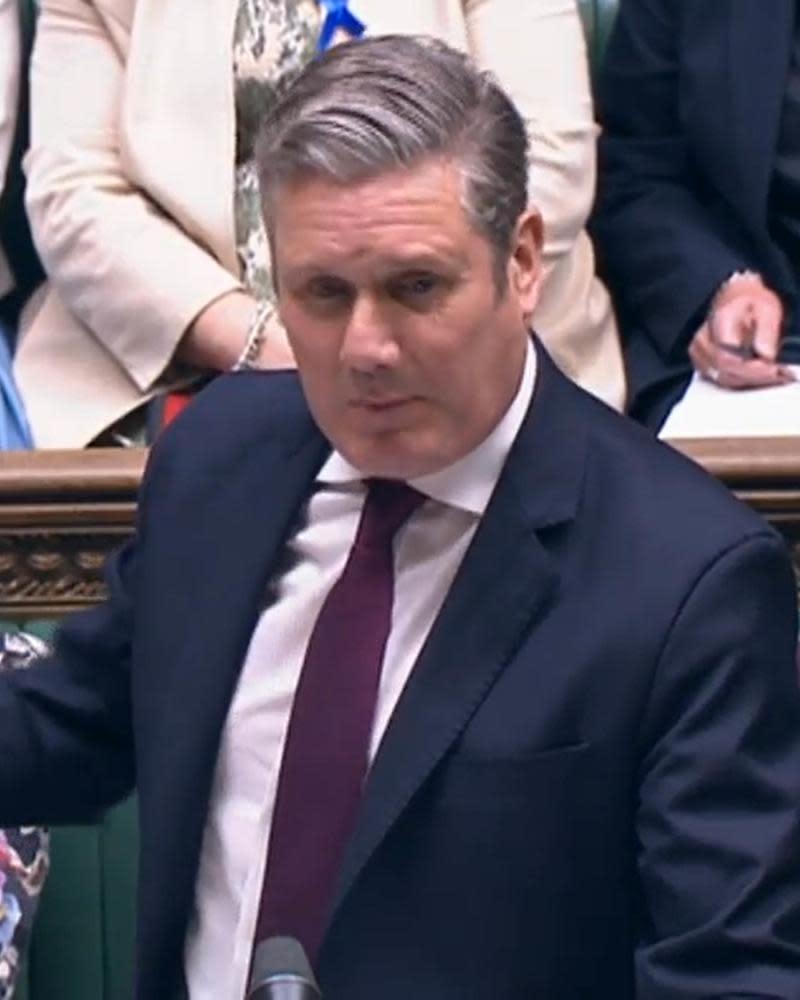Jon Cruddas: ‘Labour party must support’ rail workers in pay dispute

Keir Starmer has been warned by one of his most experienced MPs he is in danger of making a huge error by failing to support railway workers in their pay dispute.
Jon Cruddas, who served as an adviser to Tony Blair on unions, said families faced a historic slump in their incomes. He said the Labour party should back workers fighting against effective pay cuts.
“We are seeing a unique historic contraction in family incomes,” he said. “The rail strikes are arguably the canary down the coalmine. You cannot dodge this. Labour has to be supportive of those seeking to defend their living standards.”
Starmer told Labour frontbench MPs last week they should stay away from picket lines during the rail strikes. Despite the edict, five frontbenchers attended the first day of industrial action on Tuesday.
Cruddas, the MP for Dagenham and Rainham, said Starmer’s team were trying to emulate New Labour by distancing themselves from the unions, but the economic circumstances were very different. He said the Tory government was trying to force working people to pick up the costs of the pandemic.

He said: “Having printed hundreds of billions of pounds thereby fuelling inflationary pressures, the government is determined to ensure working people carry the can.
“This is what Labour has to contest. It is going to be tough, but there is no safe ground – no way of hiding from this, no tactical dodge. It was why the party was actually created. It requires real leadership.”
Mick Lynch, the RMT general secretary, said he would not tell Starmer how to run the party but it needed better policies to appeal to the rank and file workforce. He said Starmer “has not been able to tell working classes in traditional communities that ‘we’ve got a permanent message about making your lives better’.”
An Opinium poll for the Observer shows 24% of respondents consider Labour had been too supportive of the strikes, with just 13% considering they were too opposed. Twenty percent considered they had got the balance right. More than half of respondents (52%) said rail workers should be permitted to strike; 36% believed they should not.
The Trades Union Congress said this weekend an independent legal opinion of contracts between the Department for Transport (DfT) and train operating companies had confirmed the key role of the government in the negotiations. The legal opinion from Michael Ford QC concludes Grant Shapps, the transport secretary, has “very extensive powers” over what can be agreed between rail operators and unions. The rail operators must agree a mandate with the transport secretary before discussing any changes to pay, conditions or restructuring.
Frances O’Grady, TUC general secretary, said: “The prime minister and his transport minister have misled the public. When they said the government has no role in handling this dispute, that’s not true.
“When they said negotiations are just for the employers and the unions, that’s not right. We always believed that ministers had the power to pull the train companies’ strings, behind the scenes. And this legal opinion on rail contracts confirms it.
“The transport secretary could unlock this dispute. Instead, he has toured TV studios throwing fuel on the fire. Britain deserves better. We deserve honesty from our government.”
A DfT spokesperson said: “It’s extremely misleading to suggest the transport secretary should get involved in these negotiations. His role is to protect the public purse, ensuring value for money for the hardworking people of this country.
“He’s required to set the limits of taxpayer support and ultimately sign off on any deal – not to be involved in negotiating one – and his contracts with operators allow him to do precisely that. We once again urge union representatives to get back round the negotiating table instead of calling further strikes.”

 Yahoo News
Yahoo News 
